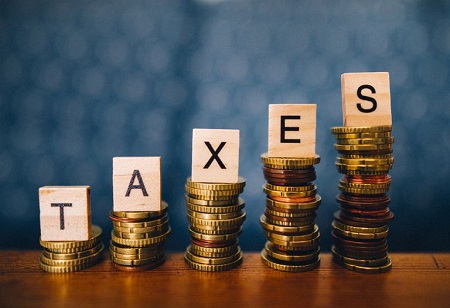The United Arab Emirates (UAE) presents a unique landscape when it comes to taxation. Unlike many countries, the UAE has not adopted a unified tax code, resulting in different fees and interest rates set by the governments of individual emirates. For entrepreneurs and businesses considering business setup in UAE, it is crucial to understand the local tax framework to navigate the financial responsibilities effectively.
The Role of Taxes
Taxes are mandatory payments levied on organizations and individuals. These payments, while individually gratuitous, serve the essential purpose of supporting the financial activities of the state and municipalities. The historical significance of taxes is profound, with one of the earliest mentions dating back to Ancient Egypt. Here, taxes were used to fund significant infrastructure projects like irrigation structures in the Nile Valley. In Ancient Greece and Rome, taxes funded military endeavors, public construction, and social activities, laying the foundation for modern taxation systems.

Historical Context of Taxes
Ancient Egypt
The concept of taxation dates back to ancient civilizations, with Ancient Egypt being one of the earliest documented instances. Taxes in Ancient Egypt were used primarily to fund large-scale infrastructure projects, such as the construction of irrigation systems in the Nile Valley. The chief scribe was responsible for including items like bulls and jewelry in the tax lists, and Egyptian priests collected these taxes. The significance of taxation extended into the afterlife, as evidenced by the discovery of figurines of tax scribes in pharaohs’ tombs, symbolizing the ongoing duty to fill the state treasury.
Ancient Greece
In Ancient Greece, taxation took on a different form. Free citizens did not pay mandatory taxes but made voluntary donations to the state treasury. Compulsory taxation was introduced only during periods of war and active construction. This income tax was levied on all free citizens, with rates varying between 10% and 20% over different years. These tax revenues and voluntary donations supported the Greek army, funded construction projects, organized citywide festivals, and provided food for the poor.
Ancient Rome
The rulers of Ancient Rome imposed taxes on all conquered lands, with higher rates levied on regions that offered significant resistance. It was in Rome that taxes were first categorized into direct and indirect forms. Emperor Octavian Augustus’ reforms introduced indirect taxes such as the trade tax, the tax on the emancipation of slaves, and the inheritance tax.
Western Europe
In Western Europe, the practice of tithing, or giving a tenth of one’s income to the church, emerged. Initially, these contributions were voluntary, but in 779 AD, Charlemagne made it a criminal offense to refuse to pay tithes. This development marked a significant shift towards institutionalized taxation in the region.

Tax System in the UAE
For Individuals
One of the most appealing aspects of the UAE for expatriates and residents alike is the absence of personal income tax. This means that wages, investment income, capital gains, and other types of personal income are not taxed, offering significant financial benefits. This tax-friendly environment has made the UAE a popular destination for professionals and entrepreneurs from around the world.
For Citizens
While there is no personal income tax for residents, the UAE operates an insurance system with a premium of 20%. For public sector employees, 5% of their salary is deducted for insurance, with the remaining 15% covered by the employer. In the private sector, the employee contributes 5%, the employer 12.5%, and the state compensates an additional 2.5%. This system ensures that citizens have access to essential social services without the burden of personal income tax.
For Businesses
Corporation tax is generally not levied on most businesses, making the UAE an attractive destination for corporate entities. However, exceptions include oil companies and foreign banks, which are subject to corporate tax. Additionally, the introduction of Value Added Tax (VAT) has impacted all enterprises with a turnover exceeding a specific threshold, currently set at AED 375,000 annually. VAT, introduced in January 2018 at a rate of 5%, applies to most goods and services, providing a new revenue stream for the government while maintaining the country’s overall tax-friendly reputation.
Property Tax
Property owners in the UAE benefit from the absence of property taxes. However, city tax is applicable when renting out property, with rates varying by emirate. For instance, in Dubai, the rate is 5% for residential properties and 10% for commercial properties. This tax is typically calculated based on the annual rental value of the property and is paid by the tenant rather than the owner. In Abu Dhabi, a municipality fee is charged on rental contracts, amounting to 3% of the annual rent for residential properties.
Excise Tax
Excise taxes are imposed on products deemed harmful to health or the environment, such as tobacco products, energy drinks, and carbonated drinks. This measure aims to discourage the consumption of these products and promote healthier living. The excise tax rates are significant, with a 100% tax on tobacco products and energy drinks, and a 50% tax on carbonated drinks. These taxes not only generate revenue but also align with the UAE’s public health and environmental goals.
Import and Export Tax
The UAE maintains a customs duty of 5% on imports of most goods, calculated on a CIF (Cost, Insurance, and Freight) basis. For excisable goods, customs duties can range from 50% to 100%, reflecting the government’s stance on regulating harmful products. Additionally, the UAE is part of the Gulf Cooperation Council (GCC) Customs Union, which allows for the free movement of goods within the member states without additional customs duties, further enhancing trade efficiency.

Practical Considerations for Businesses
Given the complexity of the UAE’s tax environment, it is essential for businesses to seek professional advice to ensure compliance and optimize their tax strategies. Consulting with advisory services can help navigate the regulatory landscape, identify applicable taxes, and take advantage of available incentives. These services can also assist with VAT registration, filing returns, and maintaining proper records to avoid penalties.
Sector-Specific Taxation
Different sectors in the UAE may be subject to specific tax regulations. For example, the oil and gas sector is subject to corporate tax, with rates varying by emirate and company. Additionally, businesses operating in free zones may benefit from tax exemptions or incentives, making them attractive locations for various industries. Free zones offer benefits such as 100% foreign ownership, full repatriation of profits, and exemptions from import and export duties.
Transfer Pricing
With the introduction of economic substance regulations and transfer pricing rules, businesses with international operations must ensure that their transactions comply with the arm’s length principle. This involves setting prices for goods and services exchanged between related entities at market rates to prevent tax evasion. Proper documentation and reporting are crucial to demonstrate compliance with these regulations and avoid penalties.
Economic Substance Regulations
The UAE has introduced economic substance regulations to align with international tax standards and prevent harmful tax practices. These regulations require certain businesses to demonstrate sufficient economic activity and substance within the UAE. Companies engaged in relevant activities, such as banking, insurance, and intellectual property, must meet specific criteria and file annual reports to comply with these regulations.
Conclusion
Navigating the tax system in the UAE requires a thorough understanding of both federal and emirate-specific regulations. While the absence of personal income tax and property tax offers significant advantages, businesses must be mindful of VAT, excise taxes, and customs duties. Consulting with advisory services can help ensure compliance and optimize financial strategies for operating within this unique tax environment. By understanding the historical context and practical considerations, individuals and businesses can make informed decisions and thrive in the UAE’s dynamic economy.

Football fan, shiba-inu lover, DJ, hand letterer and identity designer. Operating at the fulcrum of modernism and elegance to craft experiences that go beyond design. Let’s chat.
